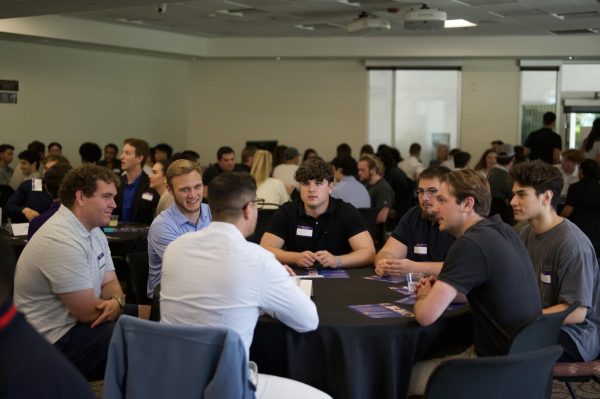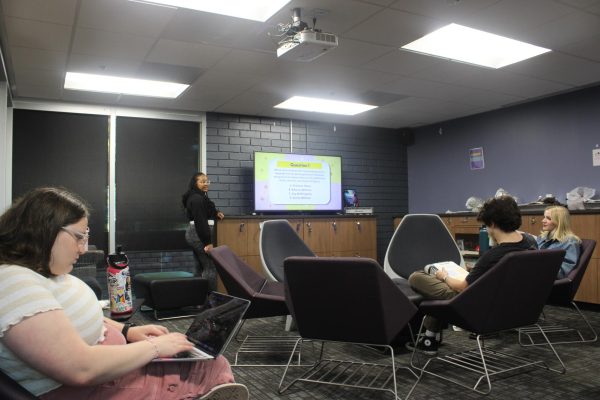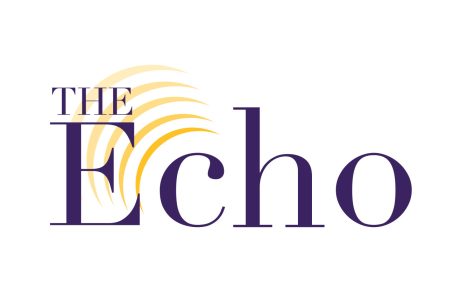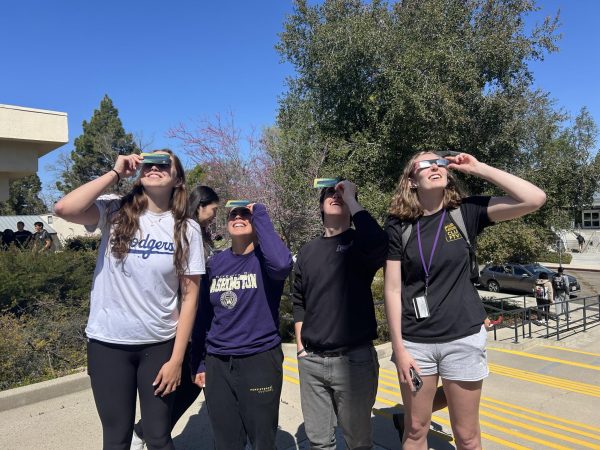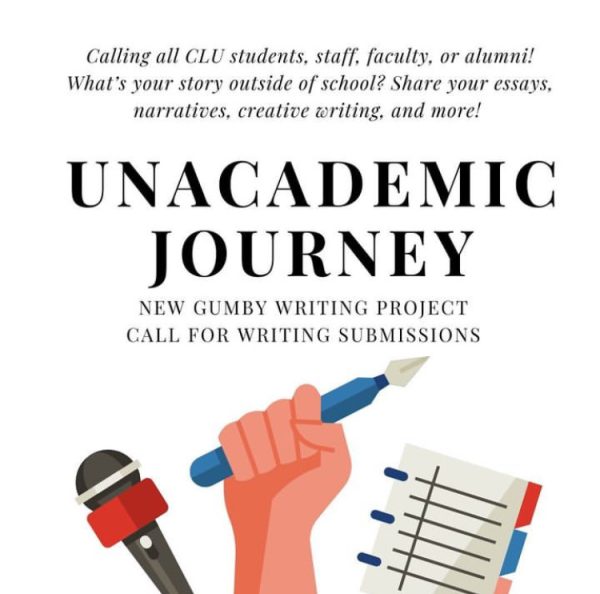New Oxford faculty leaders named through 2026
February 21, 2023
During the Education Abroad Fair, California Lutheran University announced that English professor Marja Mogke, philosophy professor Brian Collins and communication professor Dru Pagliassotti will serve as the new rotating faculty leads for the Oxford Program.
“The process was very competitive, and the selection committee had the good fortune of choosing the best of the best for the implementation of the new platform,” Christina Sanchez, associate provost of Global Engagement, said.
Sanchez said the program’s faculty lead for 2024, Mogke, will be able to help the Oxford Program have a strong transition into the rotational faculty lead format. Additionally, she said that in fall 2025, Collins will be part of the rotating position and followed by Pagliassotti in fall 2026.
“We wanted to make sure this program lived on as long as possible. And that means removing it from one person and having multiple people and multiple stakeholders involved so that it was a sustainable program for the long term,” Matthew Yates, director of the Office of Education Abroad, said.
Yates said that the entire program essentially came from former Cal Lutheran political science professor Michael Brint. In previous years, the program involved a four-week study at the University of Oxford and ended with a trip around Europe that Yates said made the program similar to a giant faculty-led program.
Sanchez said a new restructure allowed for a rotation of faculty where different staff members can be involved with the program at different times. The restructuring, Sanchez said, allows flexibility for faculty members to return back to Cal Lutheran and doesn’t require a full semester of commitment.
According to Cal Lutheran’s Semester Program webpage, the Oxford Program is a study abroad program that involves students studying at the University of Oxford and then migrating to the Council On International Educational Exchange Global Institute in London for the second half of the semester.
The Oxford Program requires that students engage in classes with the University of Oxford dons using a traditional approach to instruction, which Sanchez called a tutorial model. According to the University of Oxford’s Glossary dons are professors, lecturers or Fellows at the college. Students get one-on-one specific classes with the dons, while the faculty lead is facilitating the program in Oxford, helping students navigate the tutorial system, and teaching their own semester-long course.
According to Yates, an application or survey was sent out asking faculty what class they would propose teaching, their comfort level on taking students abroad, and thoughts of where they want to take the program if they were to be chosen. The application process, Yates said, went into further consideration of seeing if the faculty member has been a part of Cal Lutheran for a while, taken students abroad before and doesn’t have other obligations so there can be more focus on the program.
Yates said that part of the reason why specific faculty were selected was because of the nature of the courses they suggested and wanted to teach.
“We also wanted to diversify the different disciplines academically. So, religion, English, philosophy and communications being the professors’ backgrounds. So we want to try and bring in different thoughts like that,” Yates said.
Along with teaching, Yates said that he makes sure that the faculty leaders are prepared to provide the full set of support services to their students as they ask the faculty to be a little bit of everything, like acting as their dean or counselor and ensuring they are following the rules.
Yates said gender and race were also taken into account the best they could be because the single rotating faculty lead needs to be someone who is aware of Cal Lutheran’s strong commitment to diversity, equity, and inclusion and is able and willing to talk to and support any student.
“We did take DEIJ into strong consideration, and we wanted to diversify as many respects as we could. We don’t always want just English professors or just religion professors do this, we also took into consideration the identity of the faculty,” Yates said.
Pagliassotti said that they thought it sounded amazing to be able to teach when they first heard about it through Brint’s first establishment of the program.
“The course that I want to create is going to be based on my work in comic books and pop culture. I’ve done some research in this area but I wanted to do something about comic books in the empire, comics in imperialism,” Pagliassotti said.
Pagliassotti said that since the class idea was pitched when they applied, it will be planned and approved once the syllabus is developed further in the future due to the fall 2026 deadline. Pagliassotti hopes to also lead a field trip to a cartoon museum in London.
“I think it will be really fun to teach a course in a travel study course which I love, a course that has students who are just taking it because they really want to learn these topics, and it’s just so much fun to be in another country and experience it together,” Pagliassotti said.
Having taken students abroad before, Pagliassotti said the program will be interesting because they have not taken students abroad at the same time as teaching a class abroad. However, Pagliasotti said that they are excited to get the opportunity to work with enthusiastic and ambitious students.
“We are very excited to see how their different personalities, their different academic approaches will change the program. We want it to be something that’s dynamic, but we do want it to be consistent year to year in some structures,” Yates said.



